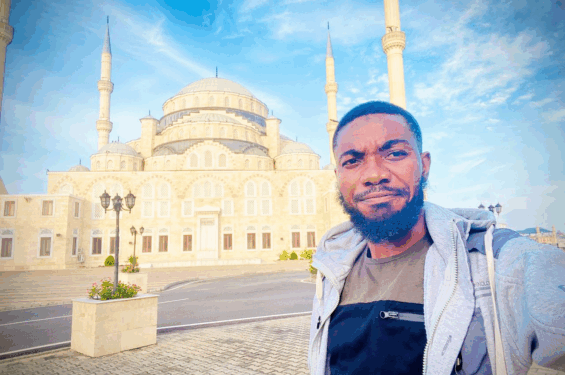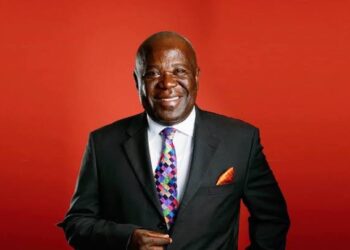The Attorney General’s opinion on the rights of Muslim students at Wesley Girls’ High School is more than a legal interpretation; it is a litmus test for Ghana’s cherished social cohesion.
To accept the view that Muslim girls can be barred from observing fundamental religious practices like the five daily prayers and fasting during Ramadan is to plant a seed of deep division that will yield bitter fruit for generations to come.
This stance, if institutionalised, will have severe consequences, necessitating a profound and strategic response from the Muslim community.
The Consequences of a Sharp Religious Division
Accepting the Attorney General’s view does not merely resolve a school policy dispute; it fundamentally alters the fabric of our national identity with the following consequences:
1. The Erosion of Constitutional Rights and National Identity: Ghana’s Constitution guarantees freedom of worship. By officially sanctioning a policy that suppresses this freedom in a public space (as most mission schools are heavily state-funded), the state is creating a two-tiered system of citizenship. It signals to Muslim citizens that their faith is a conditional, second-class identity, to be practiced only in private, undermining the “One Nation” ideal we all profess.
2. The Deepening of Mistrust and “The Othering” of Citizens: This ruling sets a dangerous precedent. If a prestigious institution like Wesley Girls can legally enforce a blanket prohibition on Islamic worship, what stops other mission schools from following suit? This will lead to the systemic “othering” of Muslim students, forcing them to choose between their faith and their education. It teaches Christian students that exclusion based on religion is acceptable, hardening sectarian lines from a young age.
3. A Catalyst for Social Unrest and Litigation: A state-sanctioned policy of religious suppression is unsustainable. It will not foster peace; it will breed resentment. The immediate consequence will be a surge in litigation as parents and advocacy groups challenge the directive. In the long term, it creates a generation of young Muslims who feel alienated by state institutions, a feeling that can be exploited by extremist elements, threatening the very peace and security we seek to preserve.
4. Damage to Ghana’s International Reputation: Ghana is a beacon of democracy and tolerance in a troubled region. Officially endorsing a policy that limits the religious freedom of a significant minority will tarnish this reputation, potentially affecting international partnerships, foreign investment, and our standing as a model of peaceful coexistence.
A Call for Strategic Reorientation: From Duplication to Development
While it is crucial to fight for our constitutional rights, the Muslim community must also engage in introspection and strategic investment to secure long-term respect and influence. The path forward is not just about demanding rights but about demonstrating our indispensable value to the national project.
As a Muslim, I think it’s about time we urgently call on Muslim communities and leadership to minimize the duplication of mosques in our communities and channel our collective resources towards building more schools, more educational facilities, and, if possible, more health institutions to serve the general population. The logic is clear and compelling:
1. Addressing the Root Cause of the Problem: The Wesley Girls’ issue arises, in part, from a lack of sufficient, high-quality educational alternatives for Muslim children. By building our own excellent schools, we are not segregating ourselves; we are empowering our community. We create spaces where our children can flourish academically without compromising their religious identity. This reduces the pressure on mission schools and gives us a stronger negotiating position.
2. Contributing Immensely to Society: A mosque serves its congregation. A school serves the entire nation. Establishing top-tier schools that admit students of all faiths would be a monumental contribution to national development. It would alleviate the pressure on the educational system for all Ghanaians and produce future doctors, engineers, and leaders. This tangible contribution to the common good is the most powerful antidote to negative stereotyping.
3. Gaining Respect Through Significance: Respect is earned, not demanded. When the Muslim community is seen building institutions of learning and healing, rather than just places of worship, it fundamentally reshapes the narrative.
We transition from being perceived as a community solely concerned with its own rituals to one that is invested in the nation’s future. Christians, and all Ghanaians, will begin to see Muslims as partners in progress.
This shared stake in national development will naturally foster mutual respect and dismantle the very stereotypes that lead to discrimination against Muslim students.
The Techiman ASWAJ Community: A Blueprint for Success
We need not look far for a successful model. The story of the ASWAJ Senior High School in Techiman, the first Muslim SHS in the Bono East Region, is a shining example of the power of visionary leadership and collective sacrifice.
The late Imam of the Techiman ASWAJ community, Sheikh Anass Alhassan, foresaw that the perpetual request for spaces in other schools and the struggle for religious tolerance would only end when the Muslim community took its destiny into its own hands. He envisioned an institution that would provide quality education in an Islamic environment while being open to all.
The path to realisation was not through a single large donor, but through the power of collective, sustained micro-contributions. The community, under its leadership, acquired a large portion of land. Years later, it launched a visionary funding model: each member was urged to contribute just GHC 10 per month for five years. This was not a heavy burden on any single individual, but its collective power was transformative. For 60 months, the community saved, planned, and built.
This grassroots funding, a testament to shared purpose, culminated in the establishment of the ASWAJ Senior High School, which now stands as a beacon of knowledge and a monument to what Muslim communities can achieve when united behind a developmental goal.
Conclusion:
The Attorney General’s view is a short-sighted approach that risks fracturing our nation. We must reject it unequivocally and fight for a Ghana where every child can learn without hiding their faith. Concurrently, the Muslim community must embark on a strategic journey of self-reliance and national contribution. Let us pool our resources to build not just more mosques where we preach to ourselves, but schools where we educate the nation. Let us shift the debate from “what we are being denied” to “what we are contributing.” In doing so, we will not only secure our rights but also earn the lasting respect of our fellow countrymen, building a more united, prosperous, and truly tolerant Ghana for all.
Disclaimer: The content provided on Fish FM Online is for informational and entertainment purposes only. While we strive for accuracy, we do not guarantee the completeness, reliability, or timeliness of the information presented. Fish FM Online and its affiliates are not responsible for any errors or omissions, nor for any decisions made based on the content available on our platform.







